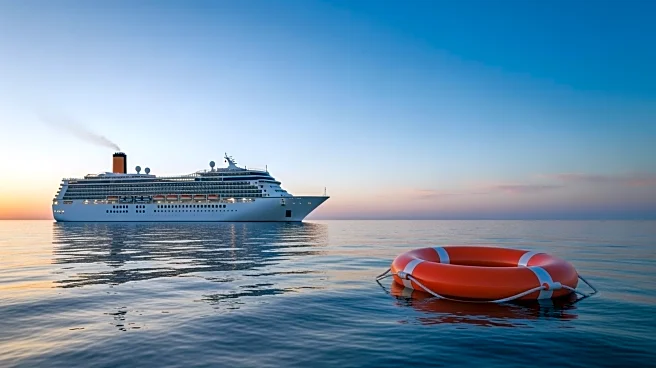What's Happening?
The Norwegian Epic cruise ship, operated by Norwegian Cruise Line, successfully rescued 63 migrants from an overcrowded sailboat in the Ionian Sea on October 22. The rescue operation was initiated after
the Unified Search and Rescue Coordination Center of the Hellenic Coast Guard requested assistance. The cruise ship, which had departed from Civitavecchia, Italy, was en route to Santorini when it diverted to aid the migrants approximately 65 nautical miles southwest of Zakynthos. The migrants were provided with medical attention, food, and water before being transferred to Greek authorities in Kalamata. The rescue operation took several hours, and the ship used one of its tenders to approach the 30-foot sailboat.
Why It's Important?
This incident highlights the ongoing migrant crisis in the Mediterranean, where overcrowded and unsafe vessels frequently require rescue. The involvement of a cruise ship in such operations is rare, as these rescues are typically conducted by coast guards and private organizations. The Norwegian Epic's diversion underscores the humanitarian responsibilities that can fall upon commercial vessels in international waters. The rescue operation also led to a delay in the cruise ship's itinerary, resulting in the cancellation of its scheduled port call in Santorini. This event draws attention to the broader challenges faced by maritime operators in balancing commercial operations with humanitarian obligations.
What's Next?
Following the rescue, the Norwegian Epic resumed its journey, heading to its next port of call at Piraeus. The incident may prompt discussions within the cruise industry about protocols and preparedness for similar situations in the future. Additionally, the Greek authorities will continue to process the rescued migrants, a task that involves identification and determining their legal status. The ongoing migrant crisis in the Mediterranean is likely to persist, necessitating continued cooperation between international maritime operators and national authorities to ensure safety and compliance with international maritime laws.









